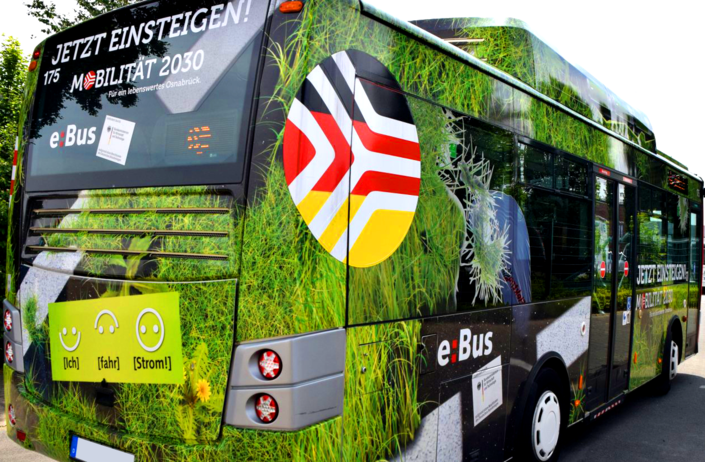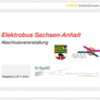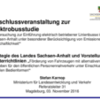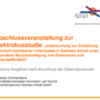"Investigation on the introduction of electrically operated public buses in Saxony-Anhalt with special consideration of emissions and economic viability"

Background
The challenges posed by the energy revolution, worldwide environmental transformation and, last but not least, obligations in the field of air quality, form the framework for a future-oriented transport policy within the European Union, on a national level and also in the individual federal states. Accordingly, the reduction of vehicle emissions, especially CO2 emissions, occupies an important place in the objectives of transport policy. Priority support is given to concepts that promote the strengthening of regional public transport whilst simultaneously addressing urgent environmental issues such as air and noise pollution. The use of "green energy", in particular, is intended to replace the use of fossil fuels in the transport sector in the future.
Consistent with this approach, national efforts aim to further develop electromobility, not only in private transport but also in regional public transport.
The state of Saxony-Anhalt sees the transport policy objective of reducing traffic-related emissions by electrifying local public transport as an opportunity to set an example for sustainable mobility beyond the drive system concept.
The objective
The Ministry of Regional Development and Transport of Saxony-Anhalt (MLV) intends to specifically support measures for the introduction of alternatively powered buses in order to develop the potential for emission reduction in regional public transport. To this end, the ERDF Operational Programme for the 2014-2020 structural funds period includes an initiative designed to promote electromobility.
To prepare for such a funding programme, a feasibility study was conducted to examine the use of electric buses from transport, technical, environmental and economic perspectives.
NASA GmbH assigned this study on behalf of the MLV and then supervised the process.





